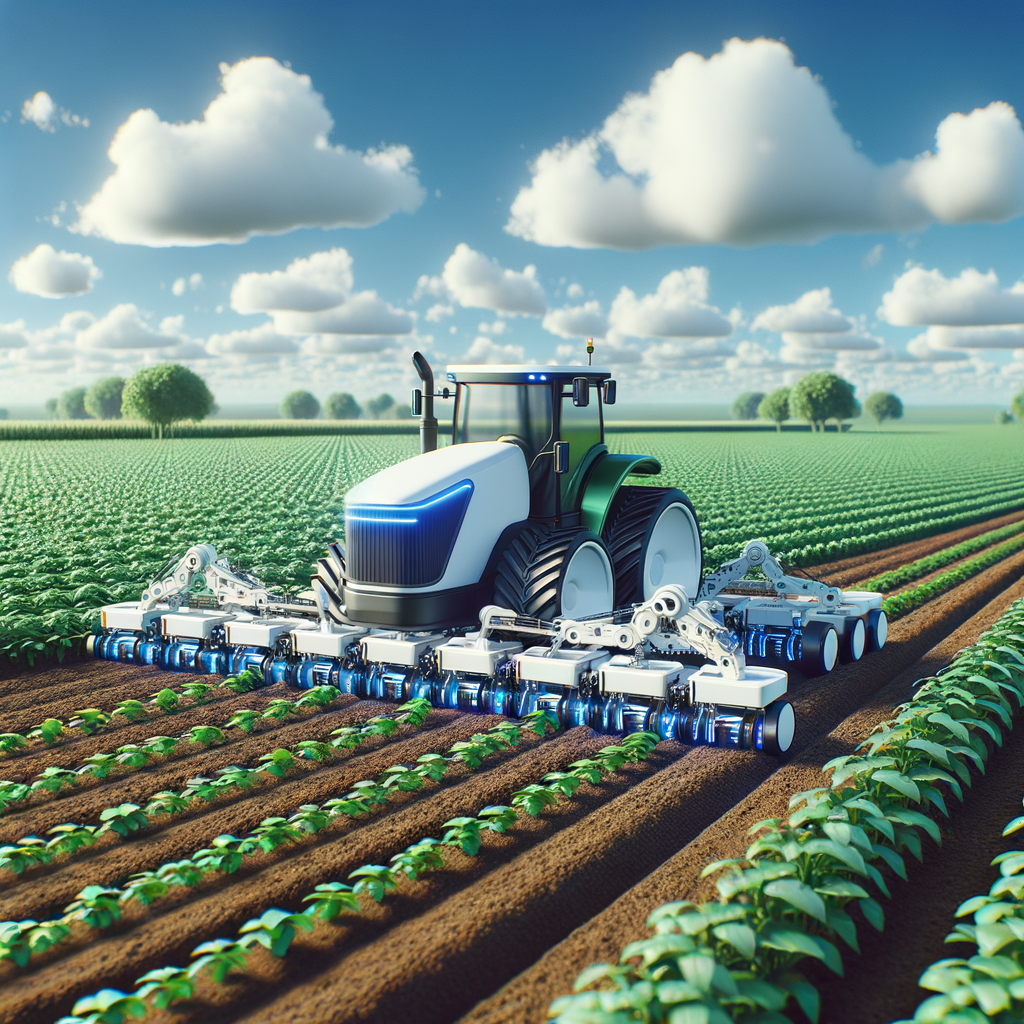
Pioneering the Future: AI-Driven Automation in Agriculture
Explore the transformative power of AI in agriculture, from precision farming to autonomous machinery, and how it's revolutionizing the industry. This blog delves into the cutting-edge technologies and applications that are shaping the future of agricultural practices, ensuring sustainability and increased productivity.
Pioneering the Future: AI-Driven Automation in Agriculture
As the global population continues to rise, the demand for food production has never been greater. Traditional farming methods are no longer sufficient to meet these growing needs. Enter artificial intelligence (AI)—a technology that holds the potential to revolutionize agriculture as we know it.
The Current State of Agriculture
Today's agriculture faces numerous challenges: climate change, resource scarcity, labor shortages, and the need to improve yields sustainably. To address these, the industry is turning towards smart farming technologies, where AI plays a central role.
Precision Farming: Enhancing Efficiency
At the heart of AI in agriculture is precision farming, an approach that uses data analytics to make informed farming decisions. By leveraging satellite imagery, sensors, and machine learning algorithms, farmers can monitor crop health, soil conditions, and weather patterns with unprecedented accuracy.
Case Study: Optimizing Crop Yields
One notable application of AI in precision farming is optimizing crop yields. Machine learning algorithms analyze data from various sources to predict the optimal time for planting and harvesting crops. This ensures that crops are grown in the best possible conditions, leading to higher yields and reduced waste.
Autonomous Machinery: The Future of Farming
AI-powered autonomous machinery is another groundbreaking advancement in modern agriculture. From driverless tractors to automated harvesters, these machines are designed to operate with minimal human intervention, increasing efficiency and reducing labor costs.
The Rise of Robotics
Robotic systems equipped with AI are making farming more efficient. These robots can perform repetitive tasks such as planting, weeding, and sorting harvested crops quickly and accurately.
Case Study: Robotic Harvesters
Robotic harvesters are transforming the way fruits and vegetables are picked. Using computer vision and AI algorithms, these machines can identify ripe produce and handle it delicately, minimizing damage and improving quality.
Sustainable Practices: AI's Environmental Impact
AI's role in agriculture isn't just about boosting efficiency and yields; it's also about promoting sustainability. By analyzing data on resource usage, such as water and fertilizers, AI can help farmers implement practices that conserve resources and reduce environmental impact.
Smart Irrigation Systems
AI-driven irrigation systems use data and sensors to deliver water precisely when and where it's needed, minimizing wastage and ensuring crops receive the optimal amount for growth.
The Future of AI in Agriculture
The future of AI in agriculture looks promising. As technology continues to advance, we can expect to see even more innovative applications that further enhance efficiency, productivity, and sustainability.
New Horizons
Looking ahead, AI has the potential to revolutionize other areas in agriculture, such as livestock management, supply chain optimization, and even predicting future market trends.
Conclusion
AI is poised to transform agriculture, offering solutions to some of the industry's biggest challenges. By embracing AI-driven technologies, farmers can ensure a more sustainable and productive future for global food production. The integration of AI in agriculture is not just a trend—it's a necessity for feeding an ever-growing world.
Through continuous innovation and adaptation, AI will play a crucial role in ensuring food security and sustainability in the coming years, heralding a new era of advanced agricultural practices.